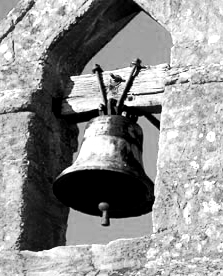Technical win in church funds finding
 The High Court has ruled that the Federal Government is not able to fund chaplains in schools, and that a $250 million effort to do so was not constitutionally valid.
The High Court has ruled that the Federal Government is not able to fund chaplains in schools, and that a $250 million effort to do so was not constitutionally valid.
The ruling has broad implications for the Commonwealth's other measures intended to receive money under similar auspices as the school chaplaincy program.
The decision comes after sustained challenges by Queensland father Ron Williams, who has kept up his campaign on the strong belief that religious programs have no place in public schools.
But the Court did not find invalidity from the allegations that the program was “imposing a religious test” for a Commonwealth Office.
The consequences largely relate to government executive accountability, and what the Government is able to do without engaging the Parliamentary process.
It is understood that the chaplaincy program is likely to continue a different Constitutional mechanism, such as through an annual grant.
Former Prime Minister John Howard launched the chaplaincy program in the lead-up to the 2007 election, and it has since then allowed Australian schools to apply for $20,000 grants to cover the cost of employing a school chaplain. Disadvantaged schools were given priority and an additional $4000 in funding.
In this year’s Budget, the Government gave a new $243.8 million packet to keep the program going for the next four years.
The National School Chaplaincy Association had argued that the educational benefits of the program were necessary, and recognised by schools, educators, parents and MPs from both sides of politics.
But the High Court has now upheld the initial finding against the program in a 2012 ruling, after which the previous Labor government of the day quickly enacted new legislation to resurrect it.
Now, the Court has found the Commonwealth has no executive power to fund the program.
It said that the school chaplains program is invalid because it was not supported by a head of constitutional power, even after it had specific legislation passed by parliament to support it.
“The making of the payments was therefore held to be unlawful,” the court said in a summary judgment.
The decision could cast doubt on billions of dollars in funding for other government programs covered by similar legislation. This list includes money for the National Disability Insurance Scheme, local infrastructure schemes, funding for surf clubs and other projects in marginal electorates, drought assistance, counter-terrorism funding and job services.
Coalition MP Andrew Laming, one of four Coalition members behind the chaplaincy program in 2007, says the cases were “frivolous and futile”, and the product of a plot by special interest groups.
“I look directly in the eyes of the loose alliance of Greens, gays and atheists who have mounted this continuous campaign against chaplaincy: you are clearly out of touch,” Mr Laming told reporters in Canberra.
Coalition figures continue to argue for the necessity of the church-linked public school staff, but others including Greens deputy leader Adam Bandt say that trained counsellors, disability workers and other support staff are a much more valuable use of the funds.







 Print
Print